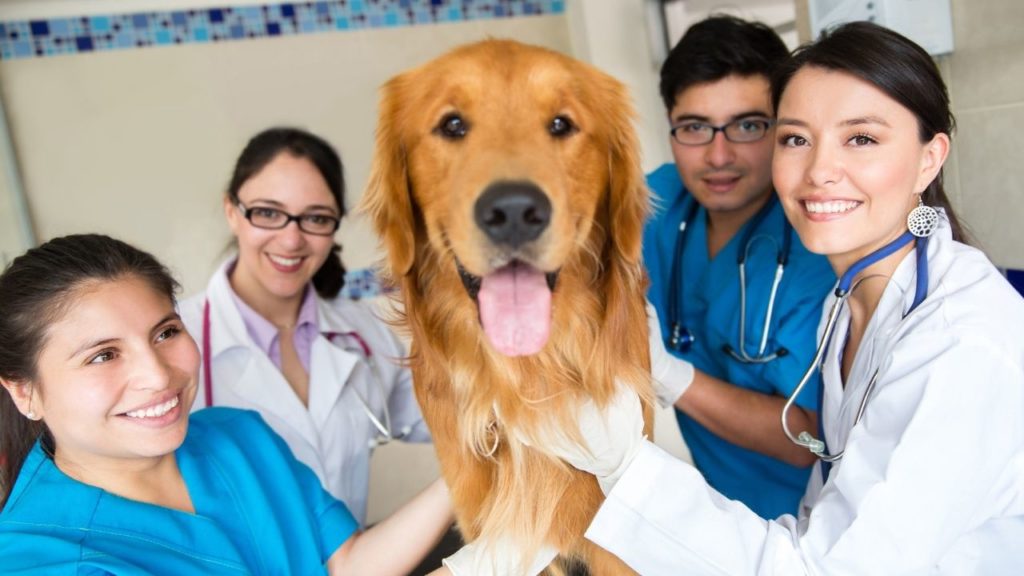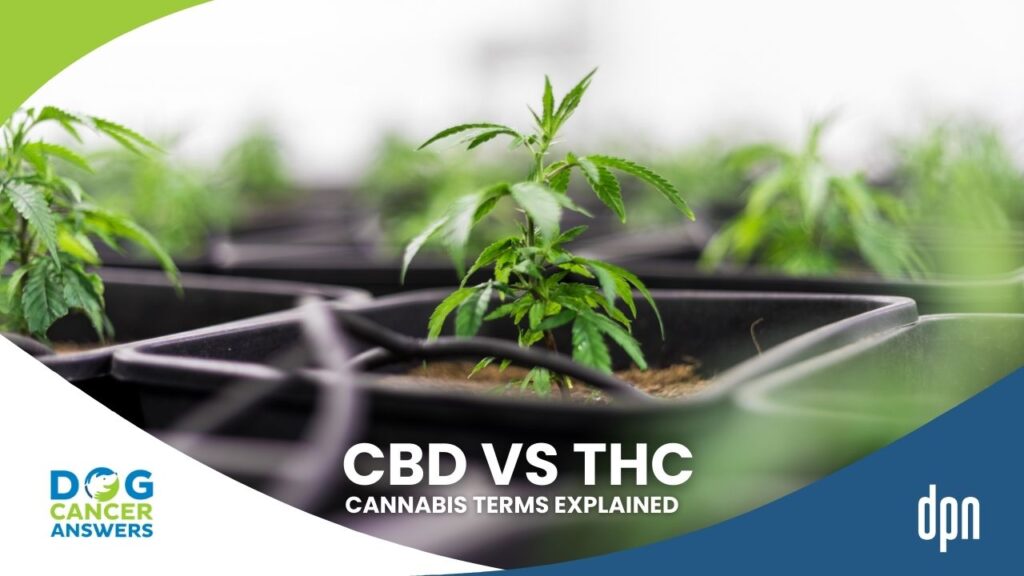>> Dr. Demian Dressler: Say somebody is using a whole bunch of different supplements and they don’t know which one is the one to use or to prioritize. Well, that’s a very good question and it’s a very common one.
>> Announcer: Welcome to Dog Cancer Answers, where we help you help your dog with cancer. Here’s your host, James Jacobson.
>> James Jacobson: Hi friend – welcome to another Question and Answer episode of Dog Cancer Answers.
Today we hear two important questions from a listener named Phyllis. Phyllis wants to know about dog cancer supplements and how to know which ones to use, and she also asks how you know if a dog is in remission.
To get answers, we turn to our Full Spectrum veterinarian, Dr. Demian Dressler. Dr. Dressler is the author of The Dog Cancer Survival Guide. He graduated from the University of California at Davis and then earned his veterinary degree at Cornell University. He’s with us today from his practice in Maui, Hawaii.
Let’s listen to Phyllis ask her questions, and then get answers from Dr. Dressler.
>> Phyllis: My name is Phyllis from Atlanta, Georgia, and I have two questions. One: If a dog has been diagnosed with cancer, is there a way to test for remission? And the second is: How can one tell which of the supplements is doing the best job in order to reduce the cost of things that are not working well?
>> James Jacobson: Dr. Dressler?
>> Dr. Demian Dressler: Hi, Phyllis. Those are good questions. So remission is defined as an absence of detectable signs of cancer.
And how do you detect cancer? Well, you detect it in different ways. Maybe you see it with your eyes, maybe you see laboratory markers, maybe you see X-ray changes. Maybe you see ultrasound changes, CT changes.
So in all of the ways that you can detect cancer, if each one of those ways does not reveal signs of the cancer, that’s how you tell if cancer is in remission. And that’s the definition of remission.
Now the second question had to do with supplements, say somebody is using a whole bunch of different supplements and they don’t know which one is the one to use or to prioritize. Well, that’s a very good question and it’s a very common one.
That’s why in the end of The Dog Cancer Survival Guide, I wrote something called the Supplement Hierarchy. And the reason for that is because there are all these supplements out there and all of this kind of the discussion being bandied around and here’s the evidence and all that.
And it takes somebody with a lot of background and a lot of understanding of mechanisms and how these things work to figure out what is actually going on.
Not only do you have to figure out what’s going on, you have to figure out how combinations of things can affect the body — whether those things are supplements or pharmaceuticals and all of the interactions there.
So if you look towards the end of The Dog Cancer Survival Guide and the Supplement Hierarchy, I’ve done most of that work for you.
And, otherwise, you could maybe go back to school for a while so you could do it yourself, which in many ways is actually what’s necessary.
Or you can talk to somebody. And as a matter of fact, that’s what I do many times when I speak with clients, is we go through all of the different supplements and we say, ‘Okay, what makes sense?’ What’s compatible, what will work under these circumstances and what can we discard?
And so I think those are kind of the three ways. Either look at The Dog Cancer Survival Guide, or do a lot of education on yourself, or speak to somebody with a long background in the field to help you with that question.
I hope that helps.
>> James Jacobson: Thank you, Dr. Dressler, for that, and thank you, Phyllis, for asking your questions.
Sometimes when our dog first gets cancer, we sort of throw everything at it that we can. We search for dog cancer supplements and start giving everything that we find online from websites and forums and pet food stores. And then later on we wonder, ‘wait – what exactly is working, and what’s helping my dog, and what isn’t?’
And then we look at all the tests that our veterinarians want us to continue doing to monitor the disease, and wonder: why? Well, it turns out that we need tests to know if our dog is in remission or not.
And we need someone with some level of discernment to help us untangle ourselves and prioritize supplements. I’m not a pharmacologist myself, so I know I can’t figure out all the ways that supplements and drugs might interact with each other, so I personally rely on people like my veterinarian, Dr. Dressler, to help me.
We’re putting some links in the show notes to help you in your search for answers, including a link to an excellent video Dr. Dressler’s co-author, Dr. Sue Cancer Vet, who’s an oncologist, did about dog cancer supplements. You can find those in the show notes in your podcast app or on DogCancerAnswers.com, where you can also listen to or download our back catalog.
Just a couple things to wrap up today’s show: don’t forget to hit the subscribe button, and write a review, and tell a friend and please tell your veterinarian about this podcast.
It’s how we grow and it is the best way that you can help support us so that we can support as many dog lovers as possible.
<<TOUCH TONE SFX>>
Those touch tones remind me to remind you to call our Listener Line–just like Phyllis did– and leave your question about dog cancer for one of our veterinarians to answer on a future episode. Call 808-868-3200 or visit our website at DogCancerAnswers.com. That number again: 808-868-3200.
And finally, we’d like to thank our sponsor: The Dog Cancer Survival Guide book by Dr. Demian Dressler and Susan Ettinger. It is available wherever fine books are sold both online and in physical bookstores. And if you would like to help support this show, get it right away direct from the publisher. You can get the paperback (with free shipping anywhere in the USA) or the ebook edition for just $9.95. To get either the paperback or the ebook go to this website: DogCancerBook.com. And because you’re a listener to this show, if you use the promo code “podcast”, you can save 10%. The website again: DogCancerBook.com and use that promo code “podcast” for 10% off. That is www.DogCancerBook.com.
I’d like to thank Dr. Demian Dressler for being our guest today. If you’d like to reach out to him, his website is www.VetinKihei.com, that’s Vet in Kihei, spelled K-I-H-E-I, dot com. Also, thanks to Phyllis for her excellent questions.
Until next time, I’m James Jacobson. From all of us here at Dog Cancer Answers and Dog Podcast Network, I wish you and your dog a warm Aloha.
>> Announcer: Thank you for listening to Dog Cancer Answers. If you’d like to connect, please visit our website at DogCancerAnswers.com or call our Listener Line at 808-868-3200.
>> Announcer: And here’s a friendly reminder that you probably already know: this podcast is provided for informational and educational purposes only. It’s not meant to take the place of the advice you receive from your dog’s veterinarian. Only veterinarians who examine your dog can give you veterinary advice or diagnose your dog’s medical condition. Your reliance on the information you hear on this podcast is solely at your own risk. If your dog has a specific health problem, contact your veterinarian.
Also, please keep in mind that veterinary information can change rapidly. Therefore, some information may be out of date.
Dog Cancer Answers is a presentation of Maui Media in association with Dog Podcast Network.








